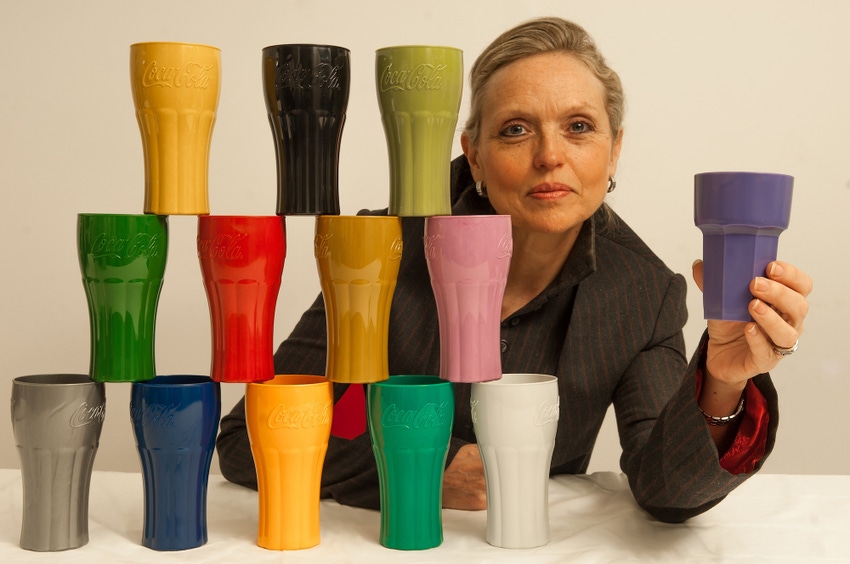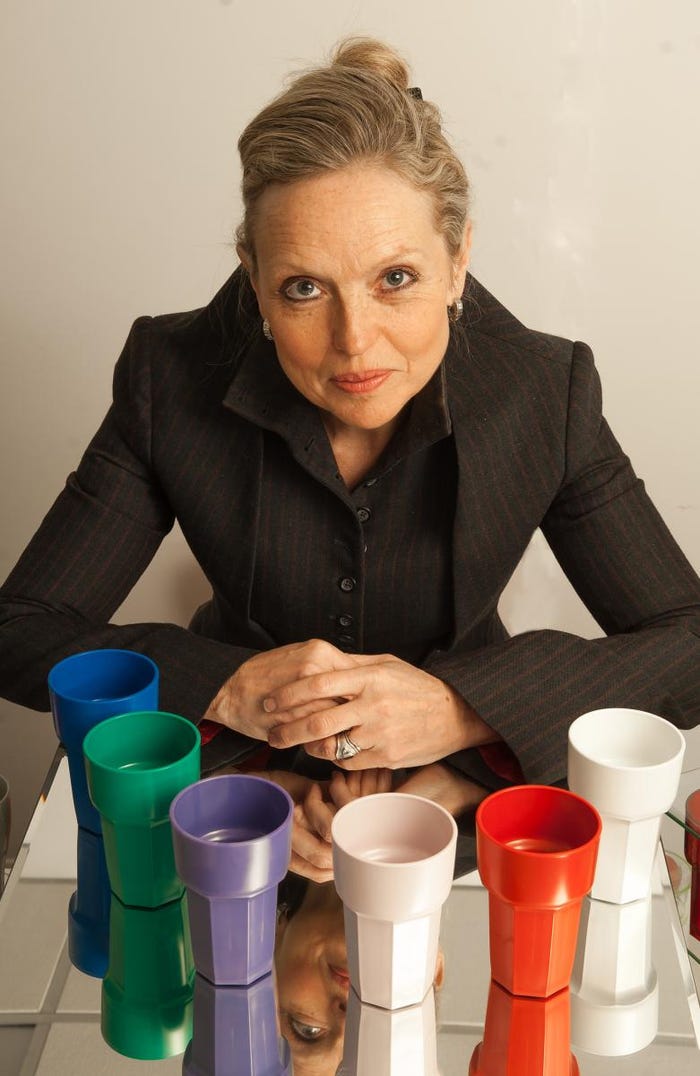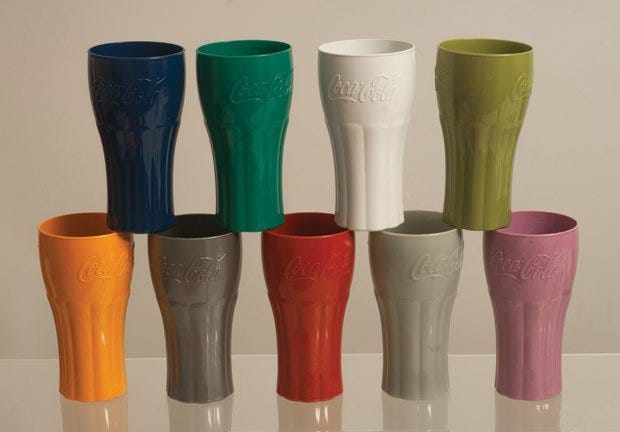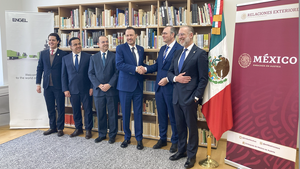British molder & Countess calls development of 100% post-consumer plastics a “game changer”
While many CEOs might like to think of themselves as royalty, not many injection molding companies can actually claim a Countess as CEO of the company. But then again, the Invicta Group is far from your average molder. Lady Leigh Onslow, the wife of The Earl of Onslow, is CEO of the Invicta Group. Her father founded the company in 1946 when he developed a polymer and rubber mix to create durable soles for military boots to combat foot problems associated with leather in jungle humidity.
March 28, 2013

While many CEOs might like to think of themselves as royalty, not many injection molding companies can actually claim a Countess as CEO of the company. But then again, the Invicta Group is far from your average molder.
Lady Leigh Onslow, the wife of The Earl of Onslow, is CEO of the Invicta Group. Her father founded the company in 1946 when he developed a polymer and rubber mix to create durable soles for military boots to combat foot problems associated with leather in jungle humidity.
In the following years, the company went on to invent the first plastic ruler and fake pearls. In the 1950s, the company created the first plastic round serving trays for Coca-Cola and launched the Hula Hoop in Europe for the Wham-O Toy company. A decade later, after approaching The Beatles and The Hollies with a concept for mass produced badges and fan memorabilia, Invicta became the first company to produce branded pop merchandise.
Now the British design and mold specialist believes it has come up with an innovation that puts Britain years ahead of other injection molders: the creation of the world's first rigid, food-safe products made from 100% recycled plastic bottles (PET), lids and milk cartons (HDPE).
While manufacturing post-consumer plastics isn't new, oftentimes the finished product is a combination of virgin and recycled polymers.
 The company trialed and tested hundreds of recycled materials sourced from the UK, Europe and the U.S. and created two new processes that they have called rPETable and rNEWable. These processes were developed due to the rapid technical improvements in recycling and recycled material production in the last three years.
The company trialed and tested hundreds of recycled materials sourced from the UK, Europe and the U.S. and created two new processes that they have called rPETable and rNEWable. These processes were developed due to the rapid technical improvements in recycling and recycled material production in the last three years.
Plastic drinking bottles, bottle lids and milk cartons are given a new life by becoming high-quality, low-cost injection molded cups, plates and tableware, toys and marketing products, and fashion accessories without some sort of virgin polymer or stabilizer, the company said.
"My view is firm about this. This is a game changer, however, this is a big game to change and there are multiple players in the game," Lady Onslow told PlasticsToday. "rPETable and rNEWable are two very important players, which have taken us two huge strides further down the pitch. This has widened the options available to the plastics injection molders, who join these cooperative brands, but it is the waste recycling stream process development, recycled plastics processors and ultimately the major brands that procure products from manufacturers for the consumer that will win the game."
Coca-Cola, a client of Invicta Plastics for more than 50 years, is among the first brands to test these new products, while Coca-Cola Enterprises and retail giant Asda are working with Invicta to explore the potential of these processes for point-of-sale products and merchandise.
Liam Knowles, sales and marketing director at Greenpac UK, a company that develops green packaging, said they were the first to create a product using Invicta's rPETable process.
"It's realistic to say that no business should ever need to use a single virgin polymer again for this type of product," Knowles said. "This puts Britain years ahead of other injection molders. The processes make molding in recycled materials very cost effective and can lower carbon footprints significantly. They also radically reduce resource depletion because they can be recycled time and time again. We now need more brands—big and small—to commission products and merchandise using this process."
Onslow said that in their sector, recycled plastics are rarely the first choice. But the company's discoveries mean that going forward they will always consider using high-quality recycled plastics before virgin polymers for a very wide range of product manufacturing.
She said it is their mission to work with major brands to spread the word, help protect the world's natural resources, save customers and the consumer money and reduce carbon footprints by one simple switch: swapping virgin polymers for recycled plastics including rPET and rHDPE.
"I cannot imagine any consumer that can afford to care about the environment not requesting 100% recycled product if this is an option," she said. "It will be driven by the public who are looking for environmental custodianship from those brands that will awaken that desire for change, if it is not already there."
The recipe
Calling the recycled materials a "recipe," Onslow said its slightly cheaper than virgin ones, however, there are some costs associated with the swap and set up for producing products for some 100% recycled plastics. She said the materials and processes compete head on in terms of price and quality to that of virgin material.
"There are other ingredients to the recipe, but let's not give it all away just yet," she said. "We have all the data to make these all come together. It has taken us four years to create a plan for this cooperative."
Lady Onslow said that some injection molding machines are highly suitable for the materials, but others need very slight modification.
It is the intention that rPETable and rNEWable will grow globally with like-minded partners who work with major brands. To do this, Invicta Plastics is seeking partners in order to expand. Initially, they are targeting UK, European, and U.S. molders. They eventually hope to open an office in Hong Kong as well.
To do this, Invicta Plastics is seeking partners in order to expand. Initially, they are targeting UK, European, and U.S. molders. They eventually hope to open an office in Hong Kong as well.
"We are licensing the polymer suppliers with our brands and we fine tune the molding specifications for their individual materials for them," Onslow said. "They can then supply their materials to injection molders. We charge a very small royalty, which we then intend to market the brands. It is a big idea. We also expect demand for use of the brands on the end products, again part of a new cooperative movement."
She said thus far, most inquiries are from companies, both small and large, that already have a strong agenda to deliver environmental and sustainability improvement.
The company will soon have its product range on its website, where it intends to develop its own brand range of 100% recycled product including those like picnic tumblers and children's educational toys. Onslow said they also open for business for general inquiries about designing or molding these materials.
"All our clients have been incredibly supportive," she said. "Over the last three years, our clients have encouraged us and made us feel we have been working to achieve an important thing."
About the Author(s)
You May Also Like


